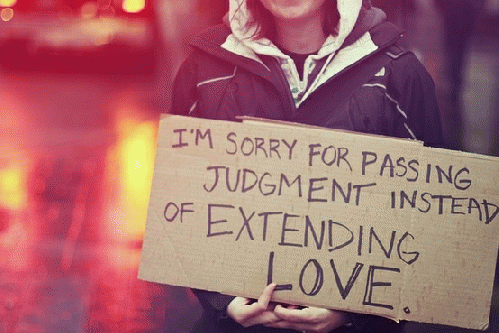It is with some trepidation that I write an
article that pertains to the events which occurred in the United States
ten years ago this month. While I believe there are important lessons
for us to learn and affirm from the events of September 2001 and the
aftermath, I am also sensitive to the fact that most of us have been
inundated with images and rhetoric, with much of it designed to evoke as
much shock, anger and emotion as possible. It is not my intention to
evoke the kind of disturbed feelings normally associated with this
event.
However, I believe, with the benefit of
hindsight and perspective, that it is important to reflect upon the
events of September 2001 and examine our role in what occurred.
Tolle explains, "There is a deep interrelatedness between your state of consciousness and external reality."
In other words, the wars that followed the events of September 2001
were not caused by the events of the eleventh day of that month. Rather,
the wars that began with that event and continue to this day are a
reflection of the collective unconsciousness of the human society. The
wars are the result of the collective dysfunction and insanity of the
human mind.
Author Paul Levy in his work, The Madness of George W. Bush speaks from the same perspective. Levy introduces his work with the statement, "If
you think this book is about the madness of George W Bush, you will be
disappointed. This book is about our collective madness. George W is
simply a reflection of our "collective psychosis". His rise to power and his ability to enact the kind of decisions made is a reflection of who we are.
There were
alternatives to war in 2001. I clearly remember the discussion that
followed in the wake of September 11th. I remember the voices that
encouraged us to use the events of that day as a catalyst to examine
the role the United States had been playing on the world stage and how
their culture and values may have contributed to the purported attack.
Unfortunately
those calling for increased consciousness, for discussion, reflection
and examination of personal responsibility were drown out by those
calling for armed military intervention, retaliation, and retribution
of those perceived to be the attackers.
What Tolle and
Levy are speaking to is our cultural norm to go to war. Beyond the
external enemy (which has been in existence almost non-stop for the
past one hundred years), we have been at war with many things - drugs,
crime, poverty, cancer, and terrorism among others. On a more personal
level, our need to be right causes us to go to war with our
neighbours, partners, families and our workmates.
The problem with going to war is that we strengthen what ever it is we fight against. Tolle writes, "Unconsciousness
cannot be defeated by attacking it. Even if you defeat your opponent,
the unconsciousness will simply have moved into you, or the opponent
reappears in a new disguise." We certainly have witnessed the truth of this statement over the past ten years.
What is the Solution?
The solution is
for each of us individually and collectively to examine our own
unconscious behaviours. The path out of unconsciousness is to examine
and root out those beliefs and attitudes that permit us to do harm to
another and to use war as a way to resolve our most complex challenges.
The cause of war
is not the 'terrorist'. The cause is our collective unconsciousness.
The threat is not another. The biggest threat we face is our failure to
treat all living beings and species with respect and dignity. The
solution will ultimately be found in changing our selves rather than
changing the other.
Tolle encourages
us to become aware of the forces of fear, anger or hostility as they
move through us. To notice when our mind is racing to defend its
position, to justify, attack, or blame. In other words to acknowledge
when there is something in us that feels threatened and wants to
survive at all costs. In these moments, to pause and notice our
unconsciousness, then identify with the part of us that notices. This
is our higher self. This is our conscious Being.
And so when the
images and rhetoric of that eventful day are re-broadcast, as I
anticipate they will, it is my hope you not allow yourself to become
hijacked emotionally and pulled into an even deeper state of
unconsciousness. Rather, that you use this as an opportunity to move to
higher consciousness and awareness of self.
We might even consider responding as we were instructed more than two thousand years ago - "love thy enemy".
May you have a peaceful September 2011.
Namate
Ted





